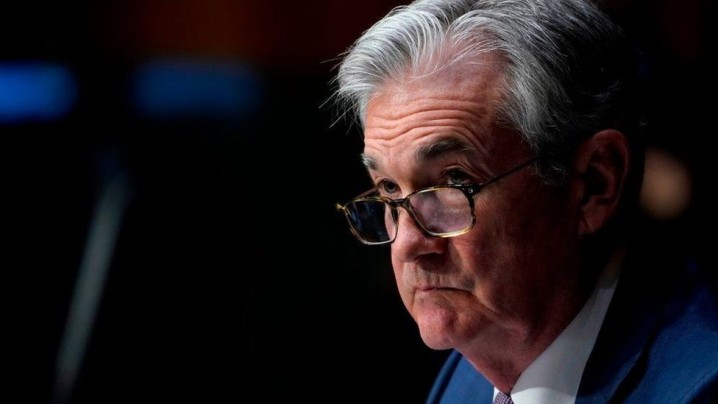Federal Reserve warns US economy path depends on virus

The US central bank has pledged to continue to support the economy even as the effects of the pandemic ease.
The Federal Reserve kept interest rates on hold near zero on Wednesday, saying rising inflation was "largely reflecting transitory factors".
A Fed statement said that while employment has strengthened, "risks to the economic outlook remain".
But it warned that the path of the economy would depend "significantly" on the course of the virus.
It comes amid fears rising prices could prompt the Bank to push up interest rates, increasing the cost of borrowing for businesses and consumers.
US inflation, which measures the rate at which the prices for goods and services increase, continued to surge in May as prices for used cars and energy picked up.
Consumer prices jumped 5% in the 12 months to the end of May, marking the biggest year-on-year increase since August 2008, according to recent figures from the US Labor Department.

What is inflation?
Inflation is the rate at which the prices for goods and services increase.
It's one of the key measures of financial well-being because it affects what consumers can buy for their money. If there is inflation, money doesn't go as far.
It's expressed as a percentage increase or decrease in prices over time. For example, if the inflation rate for the cost of a litre of petrol is 2% a year, motorists need to spend 2% more at the pump than 12 months earlier.
And if wages don't keep up with inflation, purchasing power and the standard of living falls.
Read more about inflation - and why it matters - here.

Federal Open Market Committee (FOMC) officials raised their forecast for inflation in 2021 to 3.4%, up from 2.4% in March, upgrading their projection for economic growth to 7.0%, up from 6.5% previously.
Most members of the FOMC brought forward predictions for the Bank's first post-Covid interest rate hike to 2023 following their two-day meeting.
Some analysts have cited concerns that inflation rising too quickly could force the central bank to raise rates quickly in future, putting a dampener on the economy.
The Fed tried to ease those worries on Wednesday, saying it was "committed to using its full range of tools to support the US economy in this challenging time".
'Upbeat tone'
Paul Ashworth, chief US economist at Capital Economics, said that the Fed's statement "took a more upbeat tone on the recovery".
"We had assumed the Fed would be a little more willing to let inflation rip, in favour of ensuring a 'broad and inclusive' labour market recovery," he said.
He added that the Fed's tolerance for inflation had been "misjudged".
The US central bank also stressed that it would not stop providing support until "progress is made on reducing unemployment" and inflation is kept above its 2% target.
That includes continuing to buy bonds - a type of investment where you lend money to the government - at a rate of $120bn (£85.6bn) per month.